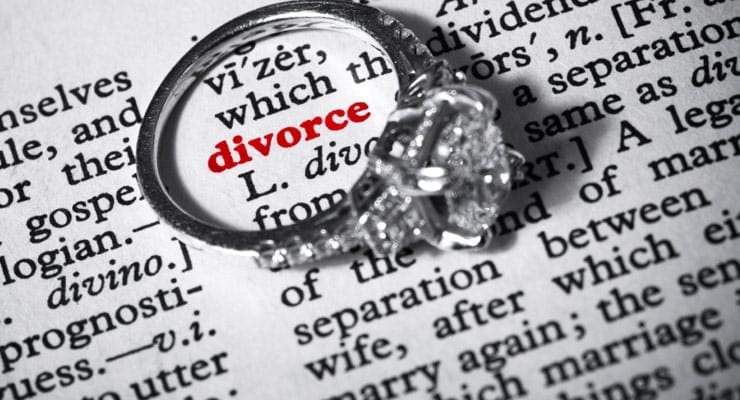2015 is proving to be the summer of the shocking celebrity divorce.
Ben Affleck and Jennifer Garner, Miranda Lambert and Blake Shelton, Khloe and Lamar. Kourtney and Scott Disick. Gwen Stefani and Gavin Rossdale.
A celebrity divorce, like a celebrity marriage, is indisputably different from the average me-and-you divorce. The dollar signs have several more zeroes after them. The spotlight of fame and ensuing tabloid gossip aggravate an already painful personal situation. The kids have ridiculously sexy nannies. But watching celebs break up in full view of millions begs many questions about why, when and how to call it quits on an unhappy union, especially when you’ve got children to protect.
Although I’m not a celebrity, I’ve thought more about divorce in the last year than I ever imagined was humanly possible. My 20-year marriage to a man I once loved ended a year ago, and our divorce was recently finalized in court, which by the way, is joltingly less romantic than a wedding. What I’ve learned about parenting kids through a rocky divorce shocks me even more than the news about Ben and Jen; it’s the kind of stuff I never read in People magazine, a therapist’s office, or any divorce self-help book.
Here goes:
- 1) The grief is unbelievable. My ex and I had known for years that our marriage could not be rejuvenated, and that folding up our tent was the best of many painful options. But still – I am bereft every day that our once promising union didn’t last, that we both lost our love for each other, and that we broke our kids’ hearts. And like all forms of grief, my ex and I express it differently. For me it’s raw. Many early days included bouts of unexpected sobbing. On the sidewalk in front of my house. In the car. In the kitchen. In bed at night. Oh well.
- 2) It’s not healthy to make your number one goal hiding divorce-related acrimony or anguish from your children. Everyone tells you kids come first, that your primary goal should be to shield them from the tumult of anger, fear, and raging disappointment that divorce evokes. Kids do need stability. You must safeguard your children, especially younger kids, from the most frightening, diabolical aspects of a split, whether they are emotional, legal or financial. But you’re lying to yourself if you think you are protecting them 100%; kids shine a spotlight on divorcing parents as probing as paparazzi cameras. Ask yourself – do you really want to convince your children that you feel NOTHING when a long-term, committed relationship falls apart? I’d rather they saw too much of my grief than to walk away thinking I am not devastated by, and at times furious about, the changes to our family and to my life’s most important intimate relationship.
- 3) No matter what your well-meaning friends say, divorce is never good for kids – in the short run. One of the biggest challenges is that kids have no control over the meteorite that has destroyed their lives. It’s normal for children to feel helpless, angry and depressed. But there are silver linings over time. My three kids, who my own eyes have seen fight over a dirty dishrag, have become vastly more interdependent; they have not had a serious argument since the day we told them we were splitting. They also have the unique opportunity to see Mom and Dad separately, with our individual strengths and weaknesses, which were masked by coupledom. They have gained a more grounded understanding of money. They’ve also gotten a dose of caution about how challenging intimate relationships can be, and that true commitment takes hard work.
- 4) Communicate to your children’s teachers, their friends’ parents, your in-laws, your neighbors and the postman that it’s an amicable, friendly, mutual split. Even when it’s not. Apart from your best friends (pray you have legions), do not expect anyone to take your side, even if your ex has behaved atrociously. No one cares. The so-called Village adjusts far more quickly than you to the idea that from now on, you both are expected to be mature, unemotional co-parents to your children. Most people want to be supportive of you and your kids – and your ex. Let them be neutral. It’s better for everyone over time, including you.
- 5) Kids do not want to see Mom date. At all. No matter their age. All three of my teenaged kids hit me with a fire hose of suspicion and over-reaction when I so much as put on lipstick before leaving the house, or talked on the phone in the privacy of my bedroom at night. This was particularly hard for me to fathom given that they had zero problem with their dad dating and getting into a serious relationship within two months of our split. I don’t understand it, but clearly in the midst of the maelstrom of change in their lives, they needed me to be 100% Mom. So I was.
A year after divorce, my report from the field is that it’s been the best and worst year of my life. The sadness I’ve felt has affirmed how deeply I love others and value commitment. It’s been exhilarating to discover parts of myself I’d lost. It’s been empowering to be my own handyman and auto mechanic, to manage my finances solo, and to reevaluate my goals for the rest of my life. Most especially, it’s been gratifying and validating and plain old fun to parent my children free from my marriage’s problems, and to rediscover how profoundly my children and I love each other, even in the midst of one of life’s most difficult times.





